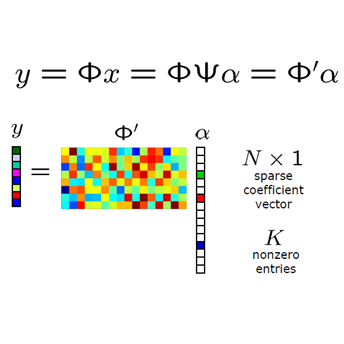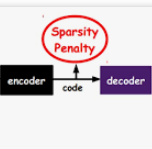In its most elementary form, compressed sensing studies the design of decoding algorithms to recover a sufficiently sparse vector or code from a lower dimensional linear measurement vector. Typically it is assumed that the decoder has access to the encoder matrix, which in the combinatorial case is sparse and binary. In this paper we consider the problem of designing a decoder to recover a set of sparse codes from their linear measurements alone, that is without access to encoder matrix. To this end we study the matrix factorisation task of recovering both the encoder and sparse coding matrices from the associated linear measurement matrix. The contribution of this paper is a computationally efficient decoding algorithm, Decoder-Expander Based Factorisation, with strong performance guarantees. In particular, under mild assumptions on the sparse coding matrix and by deploying a novel random encoder matrix, we prove that Decoder-Expander Based Factorisation recovers both the encoder and sparse coding matrix at the optimal measurement rate with high probability and from a near optimal number of measurement vectors. In addition, our experiments demonstrate the efficacy and computational efficiency of our algorithm in practice. Beyond compressed sensing our results may be of interest for researchers working in areas such as linear sketching, coding theory and matrix compression.
翻译:以最基本的形式,压缩遥感研究解码算法的设计,以便从低维线性测量矢量矢量中回收足够稀少的矢量或代码,通常假定解码器可以使用编码器矩阵,在组合体中,该矩阵是稀疏和二进制的。在本文中,我们考虑设计解码器的问题,以便从线性测量中单独回收一套稀疏的代码,这是无法使用编码器矩阵的。为此,我们研究从相关线性测量矩阵中回收编码器和稀散的编码矩阵的矩阵要素化任务。本文的贡献是计算高效的解码算法,Decoder-Extander基质化,具有很强的性能保障。特别是,在对稀疏的编码矩阵进行温和假设,并采用新的随机编码器矩阵,我们证明Decocoder-Exander基质化组在最有可能和最接近最佳数量的测量量矢量中回收了编码器和稀少的编码矩阵。此外,我们的实验还表明,我们作为研究者、研究者、研究者、研究者、研究者、研究者、研究者、研究者、研究者、研究者、研究者、研究者、研究者、研究的理论领域中的计算结果的效用和计算效率。




